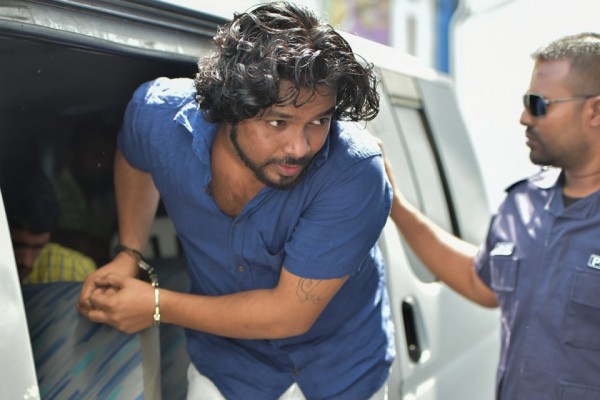Madhushanka was arrested in 2015, and is accused of being a highly trained sniper paid to kill Yameen


Lahiru Madhushanka
A Sri Lankan man charged with being involved in a plot to kill President Abdulla Yameen “has been subject to a catalogue of serious human rights violations”, says Amnesty International.
Lahiru Madhushanka, who was arrested in 2015 is accused of being a highly trained sniper paid to kill Yameen, by his then-deputy Ahmed Adeeb, and is charged with conspiracy to murder.
A report released by the London-based NGO on Tuesday- titled Maldives: The tortuous ordeal of a prisoner in paradise- notes that Madhushanka has been “subject to ill-treatment including prolonged solitary confinement and beatings with cables”.
Amnesty’s South Asia Research Director Dinushika Dissanayake noted that he “has endured the most harrowing ordeal” in the Maldives “from the moment he was arrested, to his interrogation”.
Noting that his family and lawyers have raised concern over Madhushanka being “subject to a catalogue of serious human rights violations”, Dissanayake emphasized that his case “raises alarming questions about the Maldivian justice system and how the authorities treat detainees”.
“It is also a test for the Sri Lankan government, which has only provided limited consular services and failed to adequately respond to the desperate appeals of Lahiru Madhushanka’s family and ensure a fair trial and humane detention conditions for him,” she added.
Citing his lawyers, Amnesty said that Madhushanka was beaten by officers of the Maldives Police Service (MPS) five days after his arrest, “until he lost consciousness.”
“When he regained consciousness, according to his lawyer, he felt pins had been pushed into his face. Looking down at his shirt, he saw blood,” said Amnesty, adding that he had told his family, during visits, that he was “kicked and beaten with cables”.
His family claims that the beatings “caused him to temporarily lose hearing in one ear.”
Furthermore, Amnesty noted that he was moved to solitary confinement in August this year, without providing a reason or informing his lawyer.
Amnesty’s report also highlighted the issues with his early trial proceedings, including how he was not able to understand anything as it was conducted in Dhivehi.
Noting that all hearings held in the case, except for the first three, had been held behind closed doors, Amnesty noted that Madhushanka’s lawyer was unable to effectively cross-examine the witness presented against him as they remained secret.
“In one hearing, according to Lahiru Madhushanka’s lawyer, two of the witnesses even revealed that they had been forced to provide false evidence under duress by the Maldivian police. One of the witnesses told the court that he had been forced to appear after the Maldivian police arrested and tortured his younger brother,” said Amnesty.
Noting that “if proved, the cruel and inhuman and degrading conditions within which Lahiru Madhushanka has been confined are a stain on the Maldivian justice system,” Amnesty’s South Asia Research Director emphasized that “no human being should be treated in this way”.
She further noted that Maldivian authorities must launch a thorough investigation into the case, adding that the newly elected president of the Maldives- who is to be sworn in November- “must ensure that all prisoners are treated humanely and tried in courts where justice is worthy of its name.”